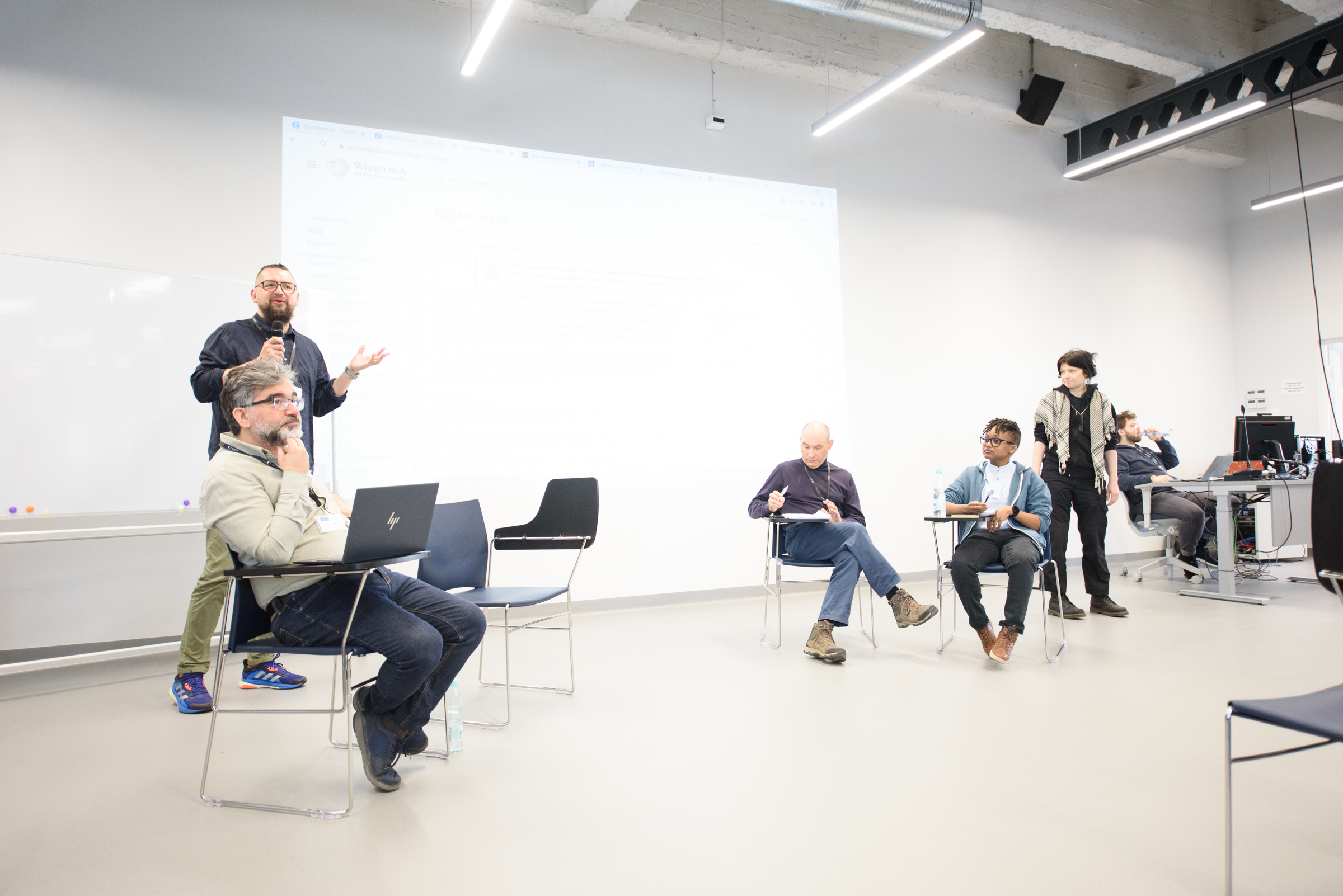The 1st GRADE conference took place in Warsaw, Poland, at the SWPS University of Social Sciences and Humanities on April 20-21, 2023. As the first major face-to-face meeting of GRADE members, this event was an important milestone in kicking off the action’s activities and team-building among working group members.
The first day was dedicated to action management, including a management committee meeting, core group meeting. Parallel meetings of each working group were dedicated to the planning and brainstorming about upcoming tasks.
The second day of the event comprised panels and round tables organised by each working group:
- WG1 (Digital Grassroots Across Europe) hosted a round table on The European Demoscene and Grassroots of Digital Europe, chaired by Alex Wade. Panelists included Gleb Albert (Switzerland) and Markku Reunanen (Finland).
- WG2 (Institutionalisation of Digital Grassroots) presented a panel focused on grassroots spaces and the right to repair, to include diverse perspectives and experience. In particular, Carlos Cunha (Portugal) offered an overview of how the right to repair has developed; Erkan Saka (Türkiye) presented the state of hackerspaces and makerspaces in Türkiye, and Star Ngei (originally from Kenya and based in Poland) talked about a Global Southern perspective on repair.
- WG3 (Digital Grassroots as European Cultural Heritage) focused their panel on recent game preservation projects, including initiatives from Confederation Ludens, presented by Larissa Wild (Switzerland), Czech ministry of culture, presented by Tereza Krobova (Czechia), and Polish digital games bibliography, presented by Paweł Frelik (Poland).
Overall, the event was a great opportunity for getting to know each other, build contacts and prepare for upcoming action tasks. One of the organisers and leader of Working Group 3, Mirosław Filiciak, emphasised that the experience was important for sorting out the division of tasks, but also for building relationships. “I’m glad we were able to host the first convening of our network, which I think was effective from the perspective of the activities facing our Action, but it was also just a great experience, an opportunity to get to know better people working on similar issues but bringing perspectives from different academic disciplines and local, regional experiences to reflect on them.”
The Warsawian neighbourhood of Grochow provided an atmospheric backdrop for the event, with the Warsaw neon museum just around the corner from the conference venue. Warsaw is also a significant city on the map of grassroots digital culture in post-socialist Europe. Traces of it may be found today in institutional spaces: the city hosts the Polish National Museum of Technology, as well as a number of smaller museums where fans of creative computing can find something for themselves. The Polishn capital was once home of the famous computer market, where pirated software was traded and future businesses with global reach were built.

